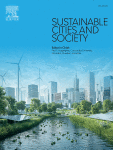Big Tobacco Targets Youth in Metaverse: Smoking Avatars in Online Games
The Rise of Tobacco Marketing in the metaverse: A New Challenge for Public Health
Virtual Spaces as New Marketing Frontiers
In a striking image shared on social media, a group of friends appears to be enjoying a night out in a bar, complete with cigarettes in hand and smoke curling upwards. However, this scene is not from a time before smoking regulations; it is a digital representation from the metaverse. This emerging virtual landscape is becoming a hotspot for marketing efforts by tobacco and alcohol companies, particularly targeting younger audiences without the constraints of traditional advertising laws.
- Virtual Spaces as New Marketing Frontiers
- Innovative Strategies in Tobacco Promotion
- Unregulated Marketing Tactics
- Expanding Monitoring Efforts
- Youth Exposure to Tobacco Marketing
- The metaverse: A New Battleground
- The Impact of Digital Behavior
- The Global Challenge of Online Marketing
- Educating the Next Generation
- Regulatory Challenges Ahead
- The Need for Proactive Regulation
- Conclusion: A Call to Action
Innovative Strategies in Tobacco Promotion
A recent report presented at the World Conference on Tobacco Control in Dublin highlighted various innovative tactics employed by tobacco firms to reach consumers. These include the introduction of digital tokens and sponsorship of online gaming events by vape companies. This initiative is part of a monitoring project named Canary, which aims to serve as an early warning system for public health concerns, managed by the global health organization Vital Strategies.
Unregulated Marketing Tactics
Dr. Melina Magsumbol from Vital Strategies India emphasizes that tobacco companies are proactively navigating around regulations. “They are already operating in unregulated environments like the metaverse while we are still trying to grasp the implications of social media marketing,” she states. For instance, one Indian tobacco company celebrated its 93rd anniversary by launching a non-fungible token (NFT) to promote its brand.
Expanding Monitoring Efforts
Canary’s monitoring efforts focus on social media and news platforms in countries such as India, Indonesia, and Mexico, with plans to extend its reach to Brazil and China, as well as to include alcohol and processed food marketing. Although Canary does not currently monitor the metaverse directly, it gathers insights through links and discussions on traditional social media platforms.
Youth Exposure to Tobacco Marketing
Research indicates that children are particularly vulnerable to tobacco marketing in these new digital realms, as over half of the metaverse‘s active users are aged 13 and under. Dr. Mary-Ann Etiebet, CEO of Vital Strategies, warns that the combination of social media’s engagement strategies and the tobacco industry’s expertise in addiction could have dire consequences in these uncharted territories.
The metaverse: A New Battleground
Mark Zuckerberg, a key proponent of the metaverse, envisions a future where users can engage in virtually any activity imaginable, including shopping and attending concerts. However, Magsumbol describes this digital space as a battleground increasingly dominated by corporations promoting health-damaging products.
The Impact of Digital Behavior
Magsumbol shares a personal anecdote about her daughter, who transforms into a fierce avatar while playing games online. “In the digital world, social norms shift, and the tobacco industry is adept at exploiting this,” she notes. The marketing tactics observed in the metaverse aim to normalize smoking and vaping behaviors, raising concerns about their potential influence on real-life actions.
The Global Challenge of Online Marketing
At the conference, researchers from Ireland reported that 53% of teenagers encounter e-cigarette advertisements daily on social media. A World Health Organization representative pointed out that the rise in youth smoking in Ukraine can be partially attributed to increased online exposure during the COVID-19 pandemic and ongoing conflict.
Educating the Next Generation
Agamroop Kaur, a youth ambassador for the Campaign for Tobacco-Free Kids in India, emphasizes the importance of educating young people about the deceptive nature of tobacco marketing. “Teaching youth to recognize misleading advertisements and influencer content is crucial for building their critical thinking skills,” she asserts.
Regulatory Challenges Ahead
The WHO Framework Convention on Tobacco Control mandates that countries implement bans on tobacco advertising and promotion. Last year, signatories acknowledged the urgent need to address the growing influence of digital marketing channels that expose adolescents to tobacco promotions.
The Need for Proactive Regulation
Andrew Black from the framework’s secretariat acknowledges the complexities of regulating online spaces. “Governments face significant challenges in providing the protections society expects in a digital landscape where traditional borders no longer apply,” he explains.
Conclusion: A Call to Action
Nandita Murukutla, who oversees the Canary project, warns that ignoring small-scale issues can lead to larger problems. “What starts small can quickly escalate, making it nearly impossible to rein in once it gains traction,” she cautions. As the metaverse continues to evolve, it is imperative for regulators and public health advocates to remain vigilant in combating the normalization of tobacco and alcohol marketing in these new digital environments.







